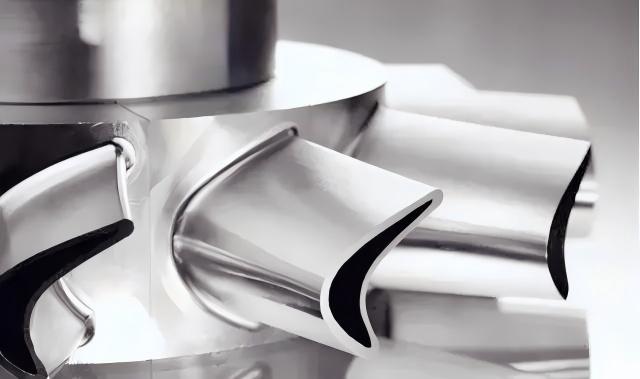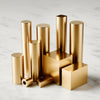Why Custom Prototyping is Now Critical for R&D

The Personalization Revolution in Manufacturing
Henry Ford's assembly line revolutionized mass production but created standardized products. Modern consumers now demand uniqueness:
-
72% of buyers pay 20%+ premiums for personalized products (McKinsey 2023)
-
Custom prototypes bridge mass production and bespoke design
Real-world impact: BMW's laser-sintered custom brake calipers reduced development time by 14 weeks while enabling driver-specific ergonomics.
3 Business Drivers Making Prototyping Essential
1. Compressed Development Cycles
-
Electronics lifecycles shrunk from 5 years (2010) → 18 months (2024)
-
Custom prototypes enable 9x faster design validation vs. traditional tooling
2. Democratized Innovation
-
Startups leverage on-demand prototyping to compete with enterprises
-
Example: Medical device firm scaled from 3D-printed concept to FDA-approved product in 11 months
3. Supply Chain Resilience
-
Localized prototyping reduces offshore dependencies
-
Cost savings: 37% lower logistics expenses (Deloitte analysis)
Advanced Prototyping Technologies Compared
| Method | Best For | Tolerance | Lead Time | Cost per Unit |
|---|---|---|---|---|
| 3D Printing | Complex geometries, multi-material | ±0.1–0.5mm | 1–3 days | $5–$200 |
| CNC Machining | High-precision metals/optics | ±0.025mm | 2–5 days | $50–$500 |
| Vacuum Casting | Silicone molds for 15–30 urethane parts | ±0.2mm | 3–7 days | $20–$100 |
Technology Deep Dive: Precision Prototyping Solutions
1. Industrial 3D Printing
-
Metal Solutions: DMLS titanium aerospace brackets (99.5% density)
-
Medical Breakthroughs: Patient-specific trabecular bone structures via SLM
-
Limitations: Surface finish constraints (Ra 3–8μm as-printed)
2. CNC Machining Advancements
-
5-Axis Micro-Milling: Optical-grade acrylic light guides with <0.02mm wavefront distortion
-
Hybrid Manufacturing: Combining additive + subtractive for conformally cooled injection molds
-
Case Study: Automotive headlight prototype: 73% cost reduction vs. production tooling
3. Vacuum Casting Evolution
-
Material Innovation: FDA-compliant urethanes mimicking PP/ABS/PEKK
-
Process Control: Automated degassing eliminates bubble defects
-
Volume Scalability: Bridge tooling for 500–5,000 unit batches
Strategic Implementation Framework
-
Phase 1: Conceptual Validation
-
Use SLS nylon for functional testing ($150–300/prototype)
-
-
Phase 2: Design Refinement
-
CNC-machined aluminum for tolerance verification
-
-
Phase 3: User Testing
-
Vacuum-cast urethane with color/texture matching
-
-
Phase 4: Pilot Production
-
Rapid tooling for 500–5,000 units
-
Why Partner with Professional Prototypers?
-
Advanced Metrology
-
CT scanning detects internal voids in 3D-printed parts
-
White-light interferometry measures surface finishes to 0.1μm
-
-
Material Science Expertise
-
200+ engineering-grade materials certified
-
-
Regulatory Compliance
-
ISO 13485 medical prototyping
-
AS9100 aerospace validation
-
Conclusion: Prototyping as Competitive Advantage
Custom prototyping has transformed from design accessory to business imperative:
-
87% reduction in engineering change orders (ECOs) during production
-
6.2x ROI according to SME benchmarking studies
Ready to Accelerate Your Product Development?
XTJ delivers ISO-certified prototyping solutions with 48-hour quoted lead times and full DFM feedback. Submit your design for instant analysis.
-
Posted in
cnc machining, precision machining, prototype CNC machining, R&D





